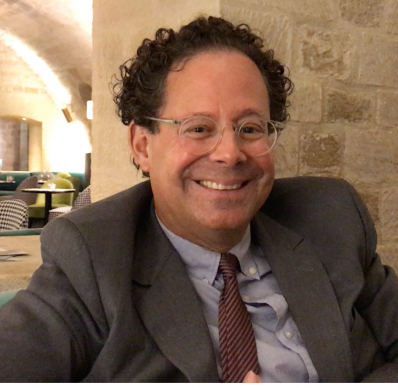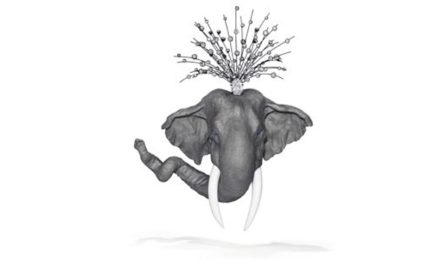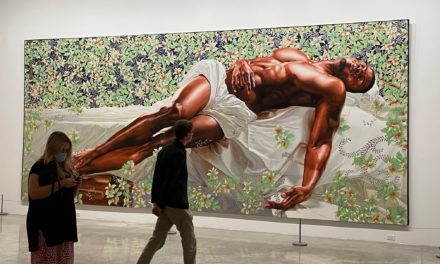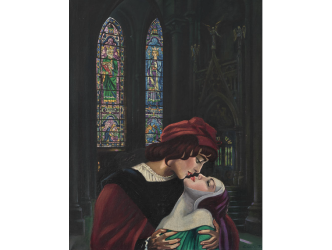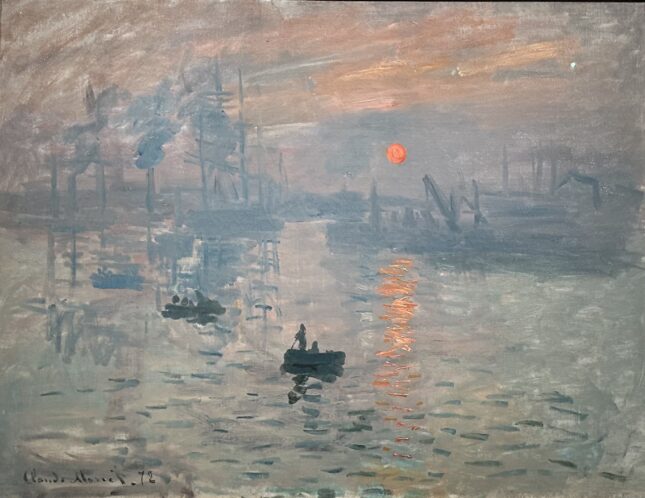
Claude Monet, “Impression soleil levant” 1872
1874: Inventing impressionism
In Paris until 14 July one of the most popular exhibitions is being held at the Musée d’Orsay. But “Paris 1874: Inventer l’impressionnisme” (Paris 1874: Inventing impressionism) is not what you think.(An entire report will be devoted soon to the question of Impressionism, which can be considered as a movement that speaks to very topical issues). While it celebrates the act of the birth of impressionism, as the title indicates, this major show is far from being solely a showcase of impressionist artists.
Pillars of art history
The 1874 exhibition was indeed staged by a group of rebellious artists who became pillars of art history: Paul Cézanne (See the last report about Cézanne), Edgar Degas (See the last report about Degas), Claude Monet (See the last report about Monet), Berthe Morisot, Camille Pissarro (See the last report about Pissarro), Pierre-Auguste Renoir and Alfred Sisley. Driven by a non-academic vision, they decided to set up a counter-show as a riposte to the ultrapowerful official Salon. But given that the costs for putting on the exhibition were high, taking place as it did in the old studio belonging to Nadar in the chic Grands Boulevards district of Paris, the circle of participants was increased to thirty.
Félix and Marie Bracquemond
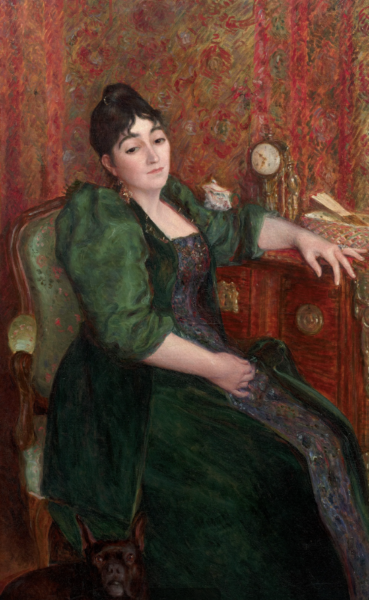
Marie Bracquemond
And the majority of these have now been forgotten. (Eight impressionist exhibitions took place between 1874 and 1886). Some of the other figures included an artist couple, Félix (1833-1914) and Marie Bracquemond (1840-1916), whose creations were captivating yet unclassifiable. Félix was a great experimenter.
Japanese prints
He is primarily known for having designed a set of dishware with decorations inspired by Japanese prints. He was an outstanding engraver but he was also practical, working in glass, ceramics and paint. One of his other great triumphs was having discovered an album of Japanese prints by Hokusai which he valued to the extent that it launched the Japonisme movement, taken up by his friend, the reactionary writer Edmond de Goncourt.
Jealous of her success?
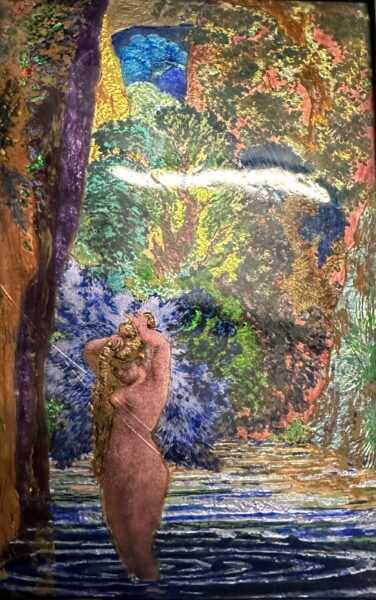
Félix Bracquemond
Later, all of them, from Manet to Picasso, would be influenced by these images from the land of the rising sun. Marie Bracquemond together with her spouse would socialize with Degas and Manet who came to visit them at their house in Sèvres, and she also painted, but inconsistently and not always in an impressionist spirit. We cannot explain the irregularity of her output. Some people talk about it being a deliberately dilettantish activity for her while others suggest it was her husband, jealous of her success, who hampered her work.
Family collection
And at precisely the same time as the Orsay exhibition, the French art market has offered up one of its minor miracles.
On 30 April the Parisian auction house Artcurial is staging a stunning first sale dedicated to the family collection preserved by the descendants of the Bracquemond family. It has been kept intact since the artist couple passed away (The video was made in the storage of the auction house, which explains the unflattering context). It is not a major show in terms of prices since the ensemble of 164 lots has an estimate of 500,000 euros. But this mass of artworks – with estimates for prices that are often outrageously low in order to attract bids – has passed through four generations to go straight into art history. The Louvre and the Musée d’Orsay possess some pieces by the couple but we can imagine that French institutions will instate a certain number of pre-emptions (priority in purchasing at the end of auctions by state authorities) in the sale.
Edmond de Goncourt
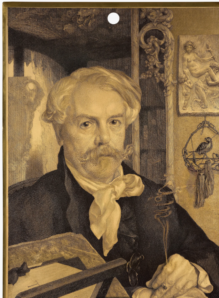
Félix Bracquemond
Edmond de Goncourt, who was a great lover of Japanese prints and French 18th-century paintings, was a close friend of Félix Bracquemond. He speaks about him at length in his journal. The French museums, including Orsay, the Louvre and the Petit Palais in Paris, have different versions of the portrait of Edmond by Félix. Artcurial is presenting on 30 April the copper plate for the engraved portrait of Edmond de Goncourt. It has an estimate of 10,000 euros. A preparatory drawing of the same very detailed depiction was unveiled at the impressionist exhibition in 1880.
Rousseau service
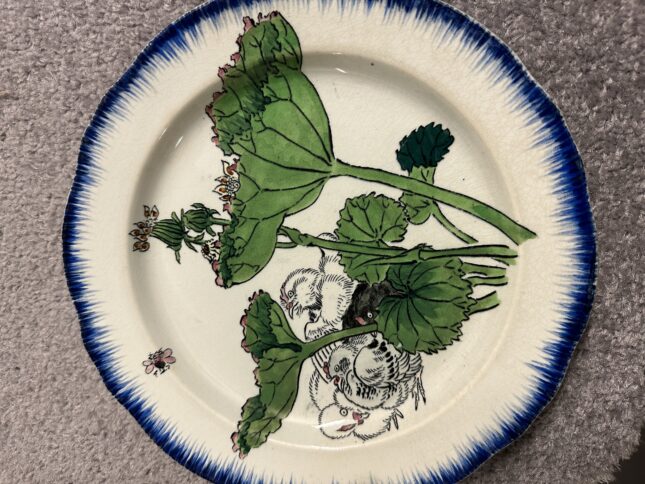
Félix Bracquemond
One of the highly anticipated lots is part of an enamelled dishware set known as the “Rousseau service” made in 1866, here composed of 99 pieces, which has an estimate of 10,000 euros, inspired by animals in Japanese folklore. “It was the start of ceramic sets designed for large numbers,” explains the expert in decorative arts at Artcurial, Sabrina Dolla. “Each piece is unique. Bracquemond left workers the choice of the size and arrangement of the motifs. It would be issued until the 1940s. Today, on the market, a single plate trades on average for between 5000 and 10,000 euros.
“Sky-the day before the great rain”
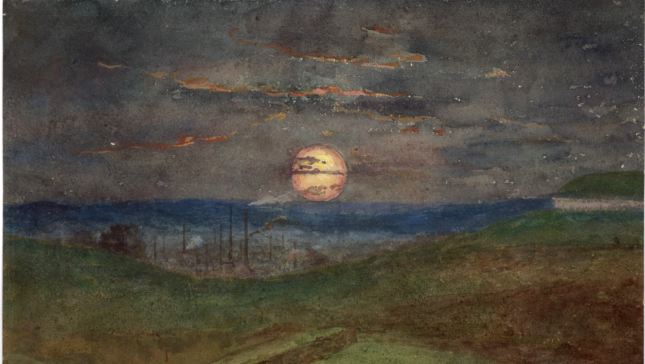
Félix Bracquemond
Bracquemond is lesser known as a painter, but we discover fascinating pieces at this sale which reference, like Monet, the effects of climate on atmosphere. See the watercolour “La pluie arrivant sur le littoral”, annotated with the mention, “Ciel-la veille de la grande pluie” (Sky-the day before the great rain). It is reminiscent of the watercolours by British artists Bonington and Turner with a transparent-looking sky (estimate: 600 euros). Just like “Coucher de soleil sur les cheminées d’usine”, a watercolour with gouache (estimate: 600 euros).
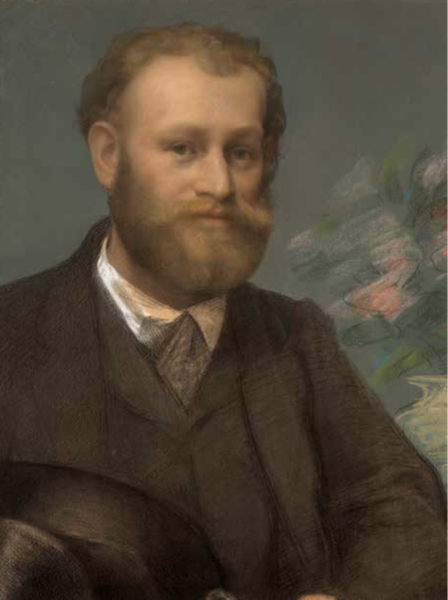
Félix Bracquemond
The catalogue also features a pastel portrait of the illustrious Edouard Manet in pastel with an estimate of 40,000 euros (See the last report about Manet here). This is the highest sum in the catalogue.
The record price for the artist in the field of paintings and drawings only goes up to 50,100 euros for an album of forty-three works on paper.
Like Art Deco
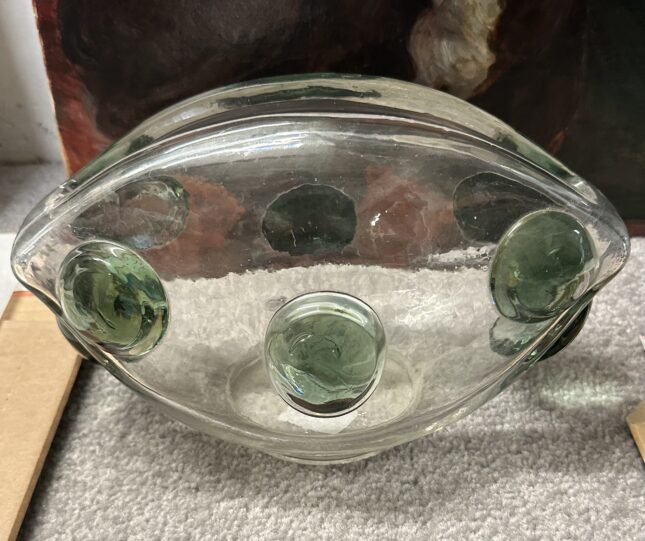
Félix Bracquemond
One of the big surprises of the sale is a series of glass vases that look like they belong to the Art Deco movement from the 1930s but which Bracquemond designed in the late 1870s (on sale for between 800 and 8000 euros).
In the wave of women artists
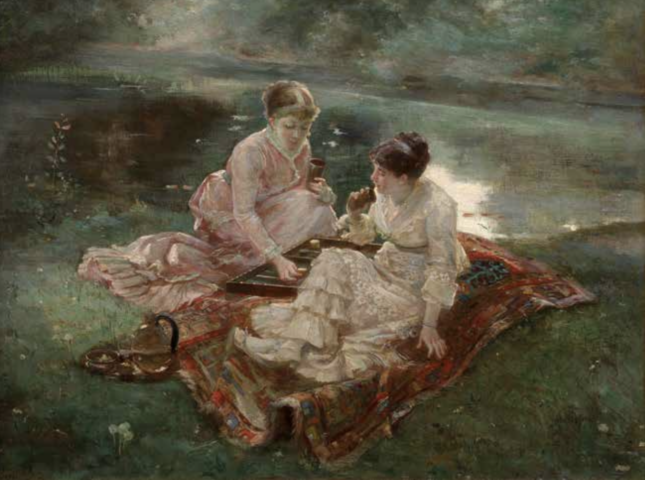
Marie Bracquemond
The body of work made by Marie Bracquemond is modest because she only practiced for around fifteen years, according to the paintings expert at Artcurial, Matthieu Fournier. She was recently part of the wave of women artists who have been rediscovered by museums. The first among them in 2008 was the Legion of Honor museum in San Francisco, who unearthed her as part of a large show dedicated to female impressionists.
Atmospheric effects
Although she took part in historic impressionist exhibitions at least twice, the Musée d’Orsay mainly has her works on paper. The art market database Artprice lists only 52 lots by Marie presented at auction since the late 1980s. The highest price is for an oil painting from 1886 depicting her husband, which sold for 30,200 euros in 2008 in Paris. Like him, she worked on atmospheric effects, also under the influence of Monet. She would go out into the countryside to paint oil studies on small canvases at different hours of the day and from different perspectives.
Etudes d’arbres
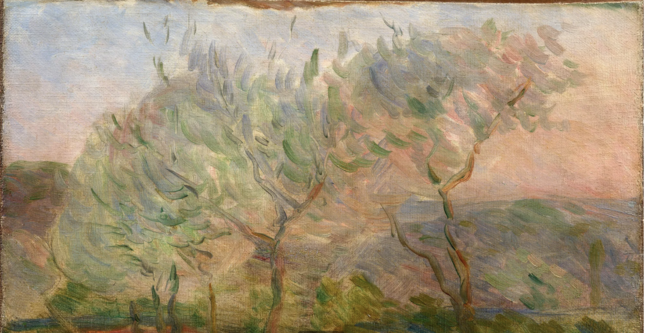
Marie Bracquemond
In the sale, “Etude d’arbres à la lumière du levant” and “Paysage aux arbres au soleil couchant” each have an estimate of 600 euros. At the last impressionist exhibition she presented “Les joueuses de Jacquet”, an oil on canvas featuring two young women prettily dressed in white against a bucolic background (estimate 15,000 euros). A subtle study of the effects of shadows.
The art historian Henri Focillon would later comment poetically that: “Marie Bracquemond is perhaps another lady of painting beneath the shaded foliage of Sèvres, in the midst of a royal summer, she likes ruffled dresses that swish when one walks, rosy faces that the transparency of the parasol glazes with a flash of sky.”
It is time for her and him to be rediscovered by the art market.

Félix Bracquemond
30 April. https://www.artcurial.com/
Support independent news on art.
Your contribution : Make a monthly commitment to support JB Reports or a one off contribution as and when you feel like it. Choose the option that suits you best.
Need to cancel a recurring donation? Please go here.
The donation is considered to be a subscription for a fee set by the donor and for a duration also set by the donor.

